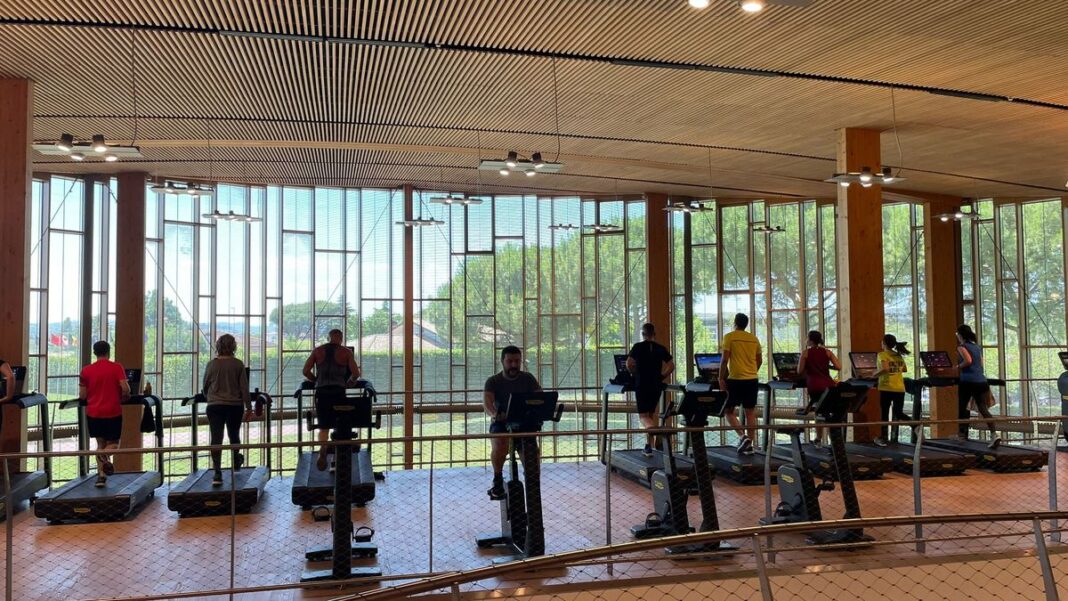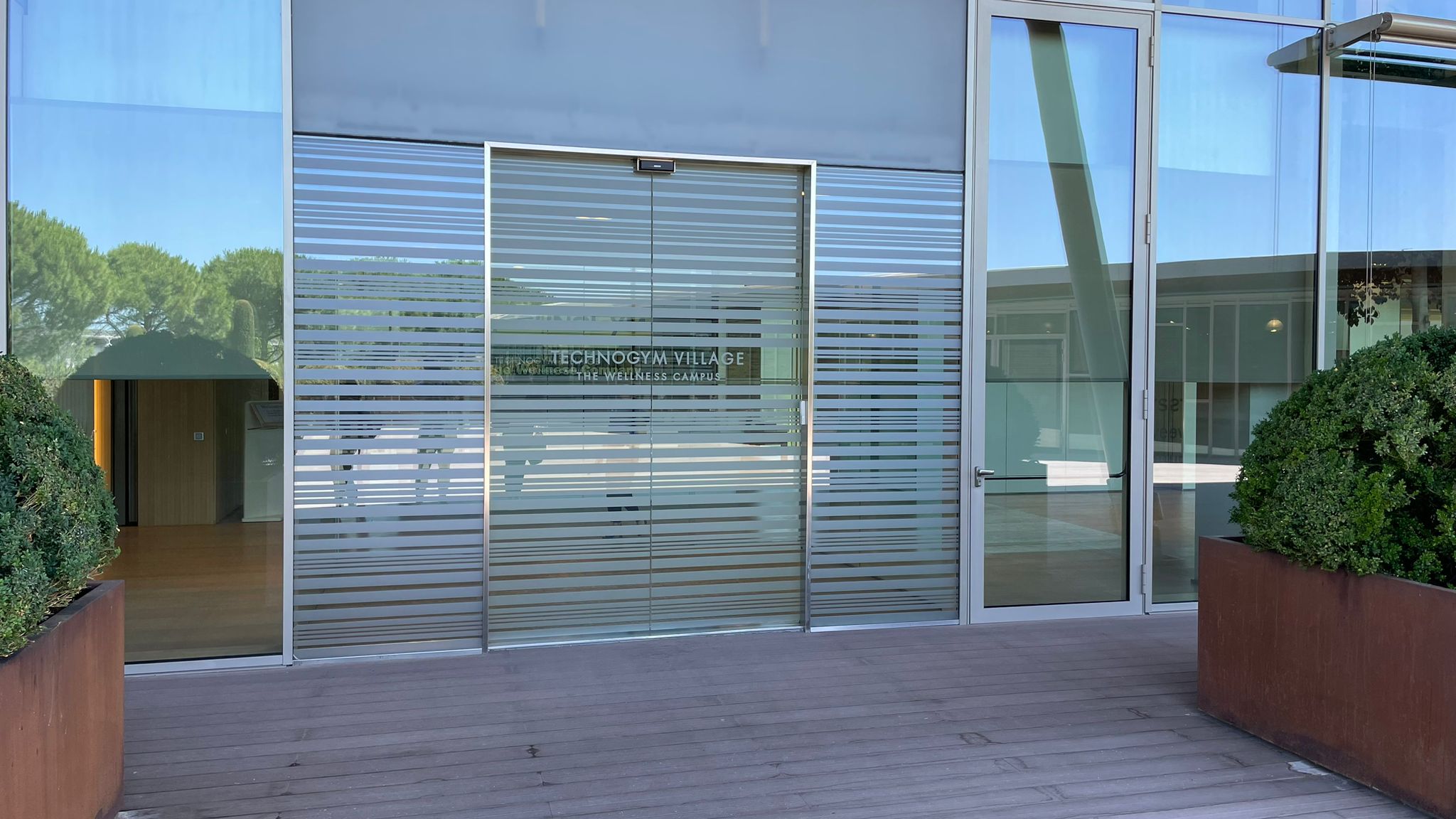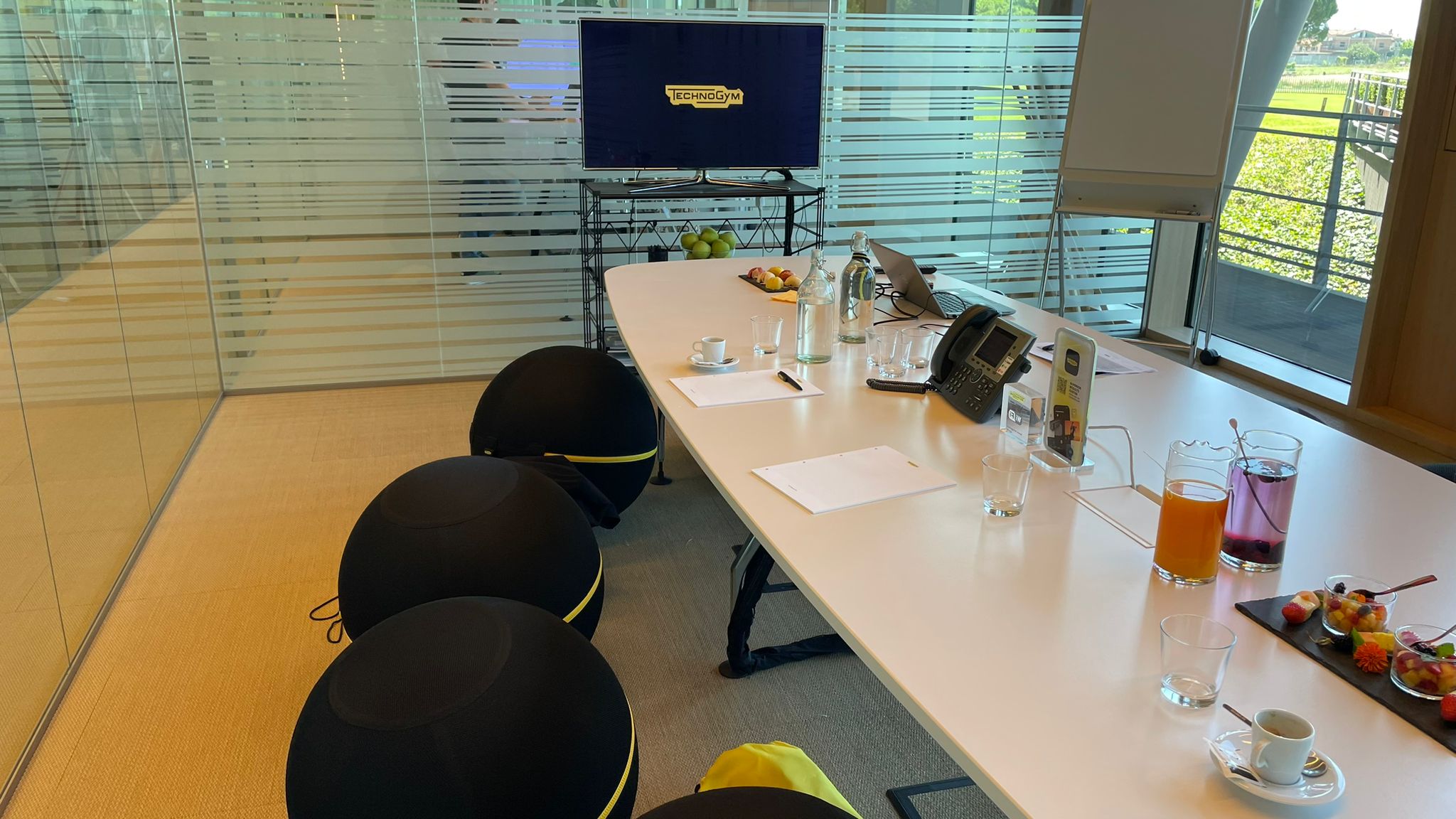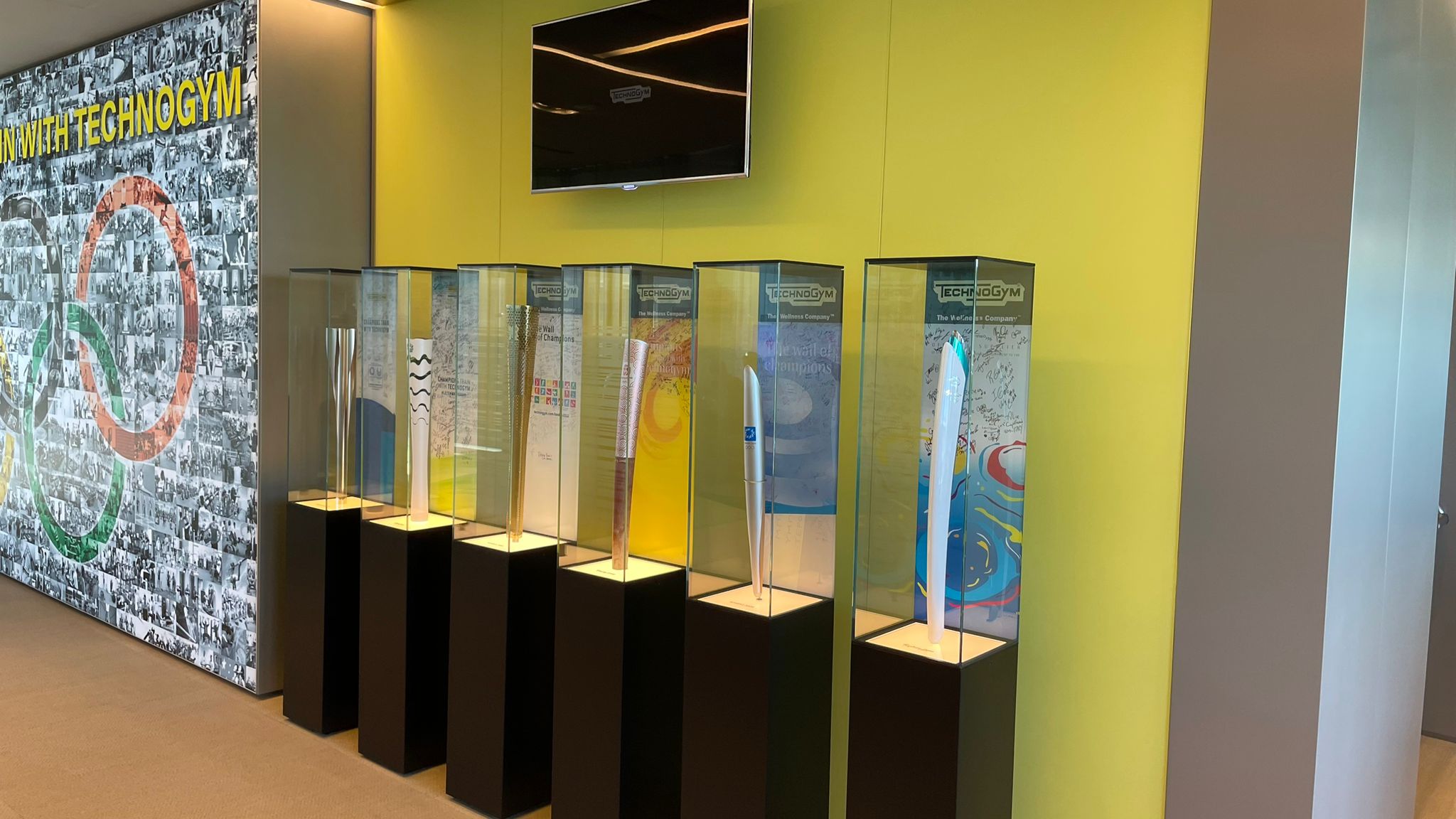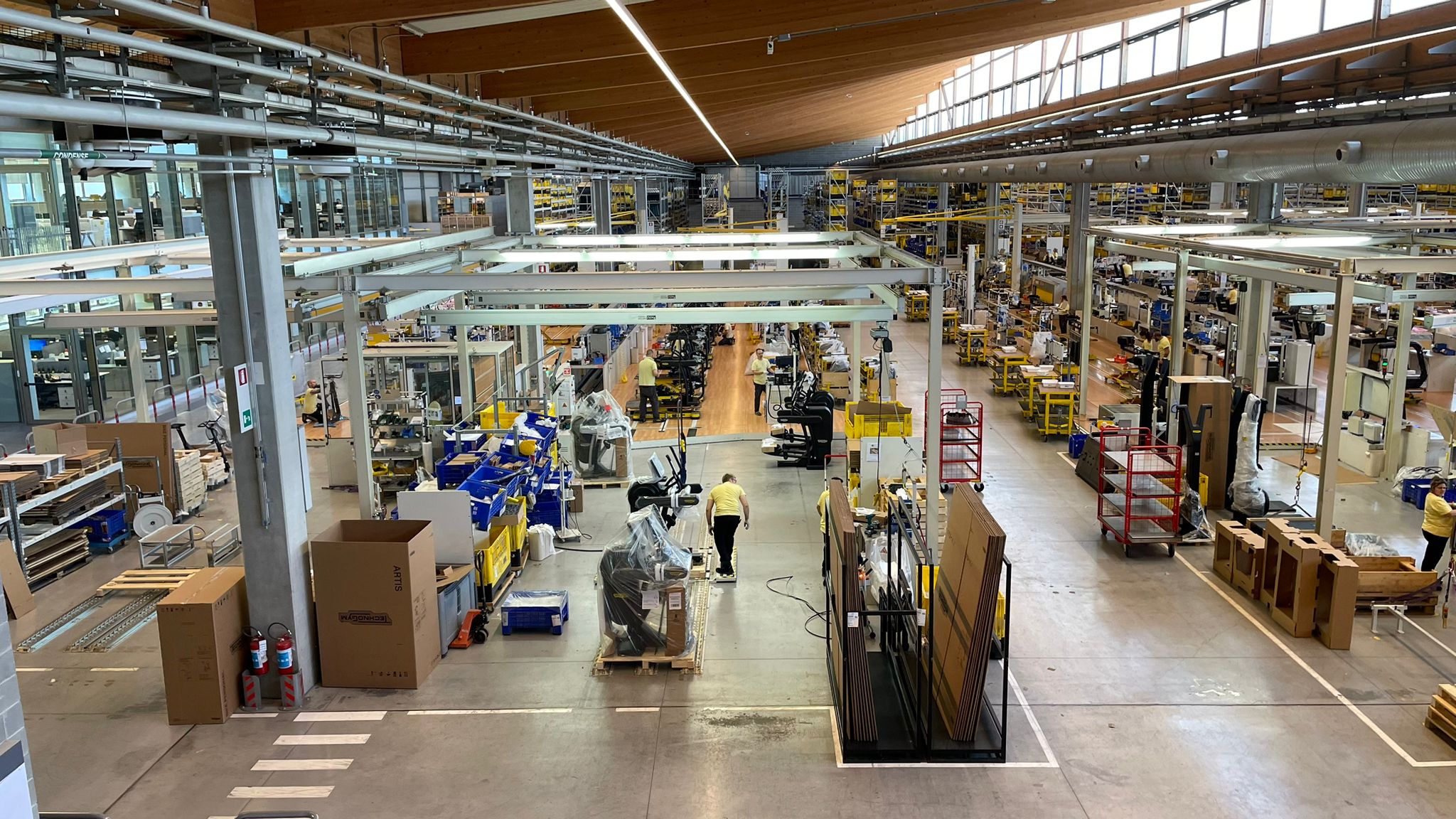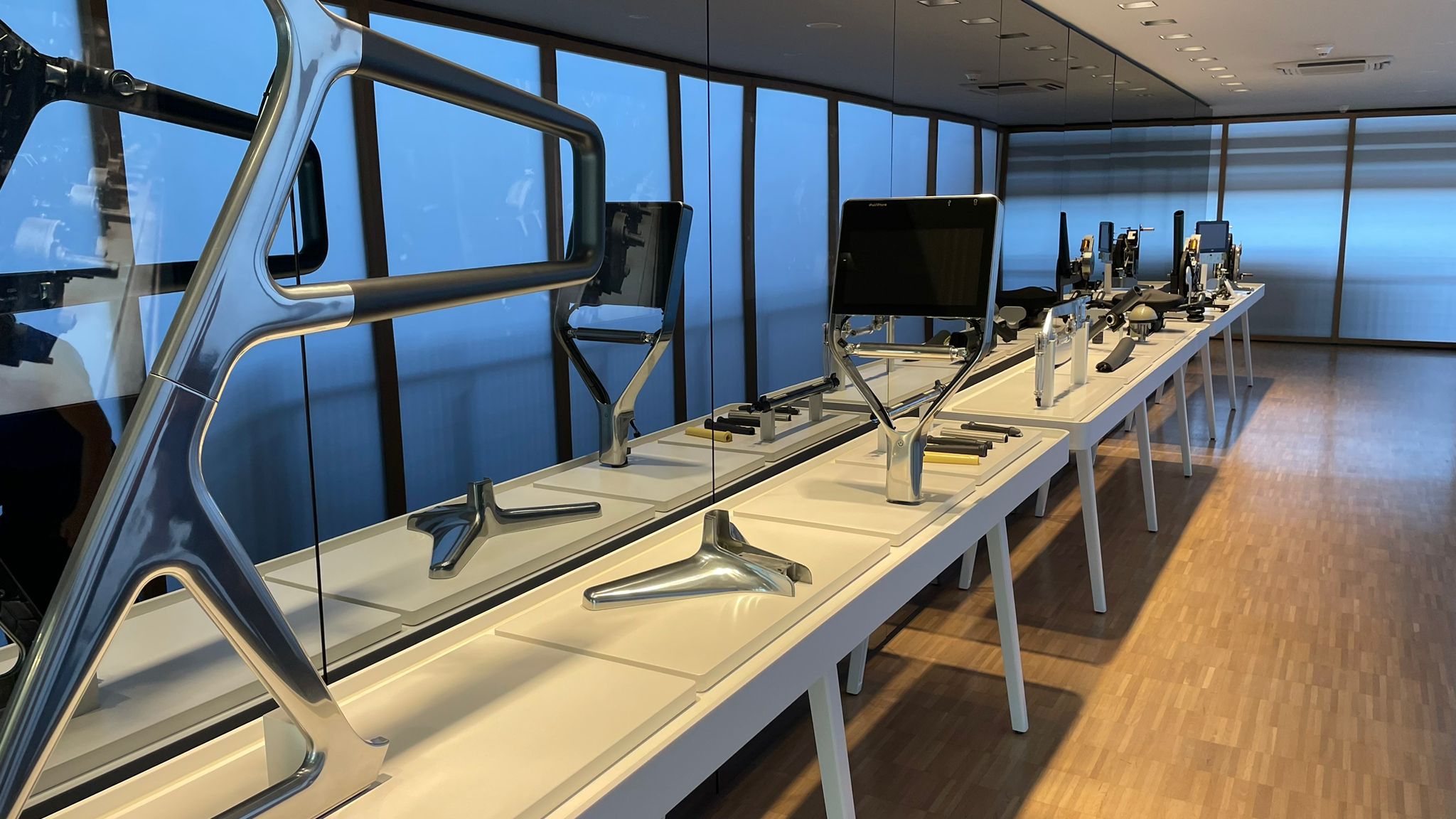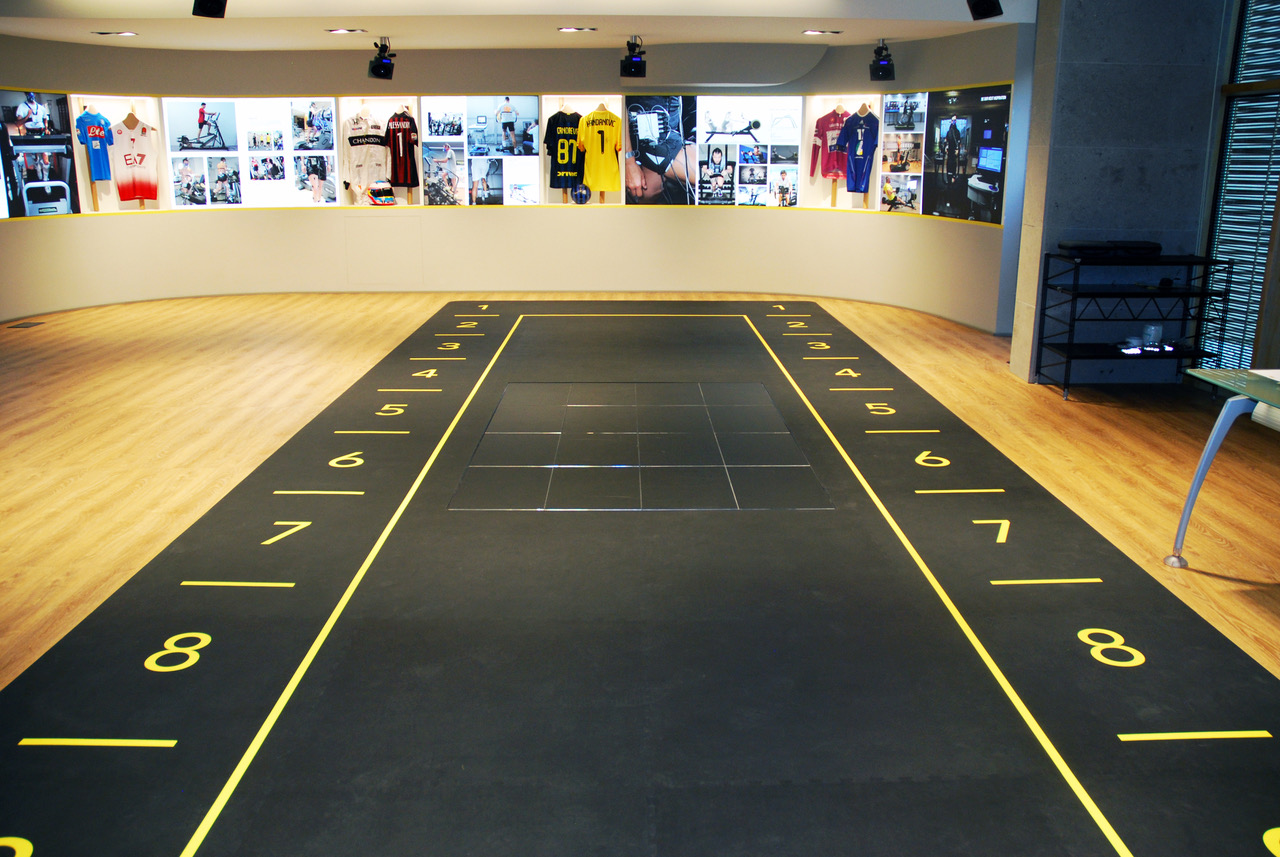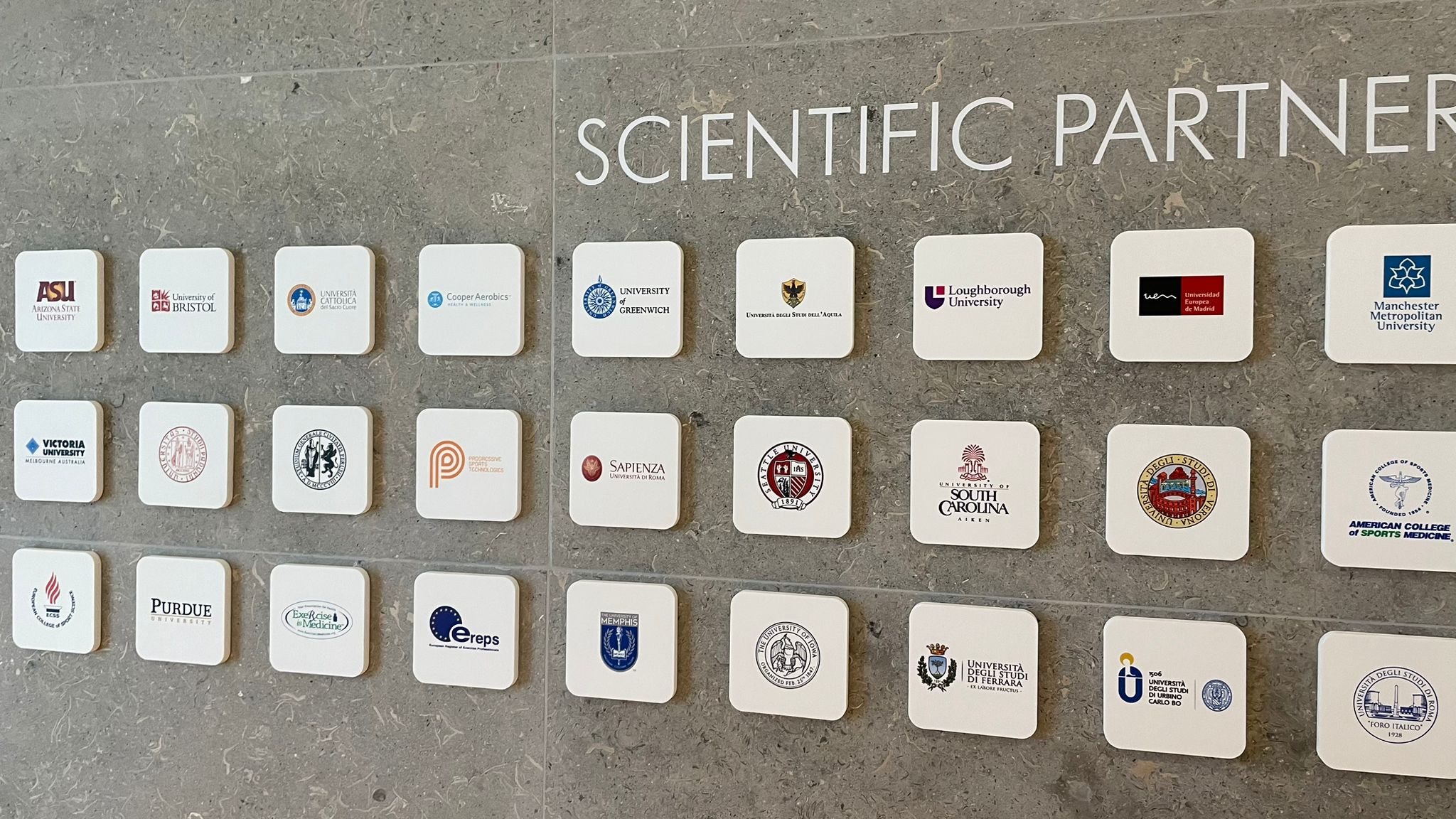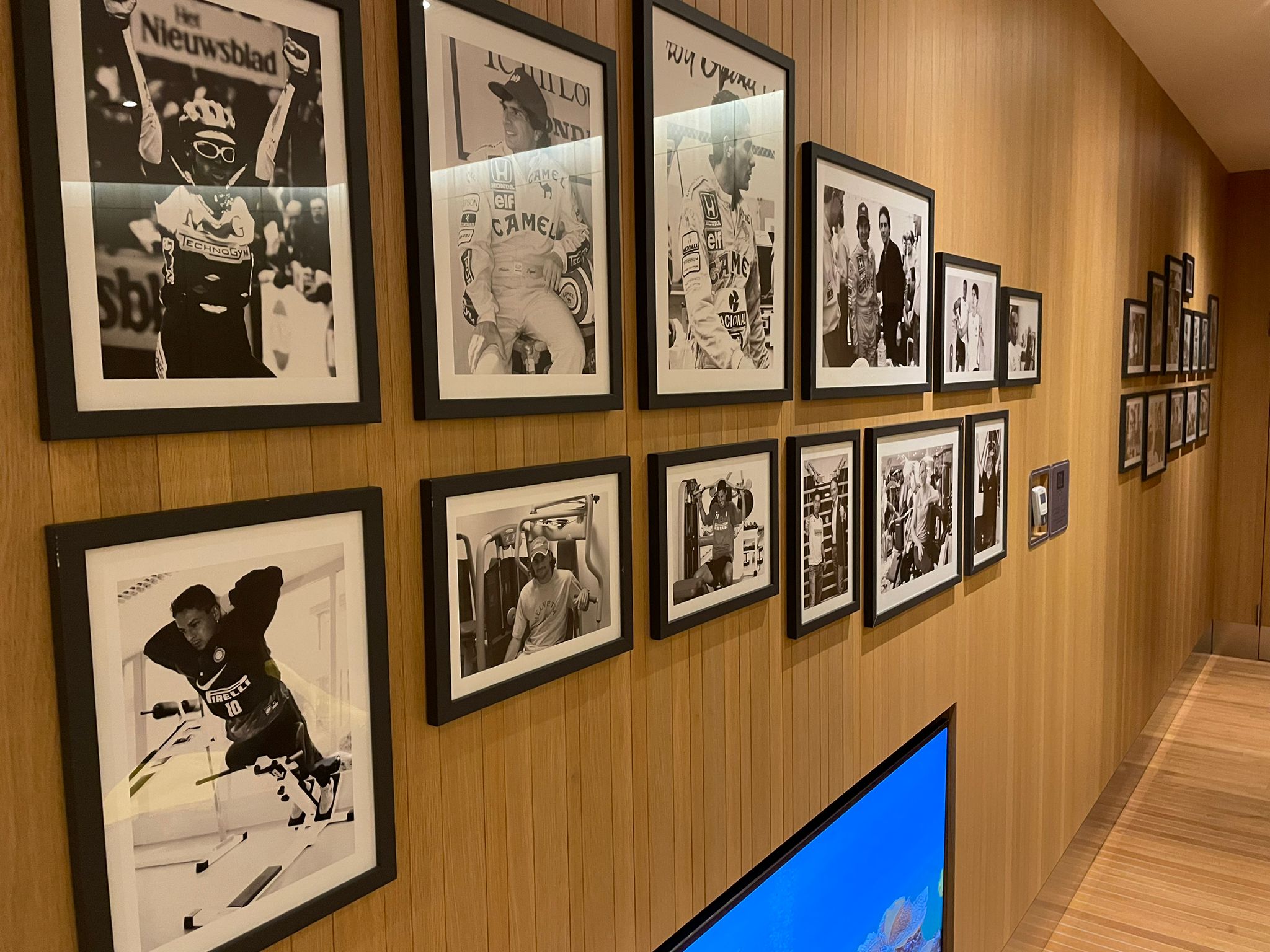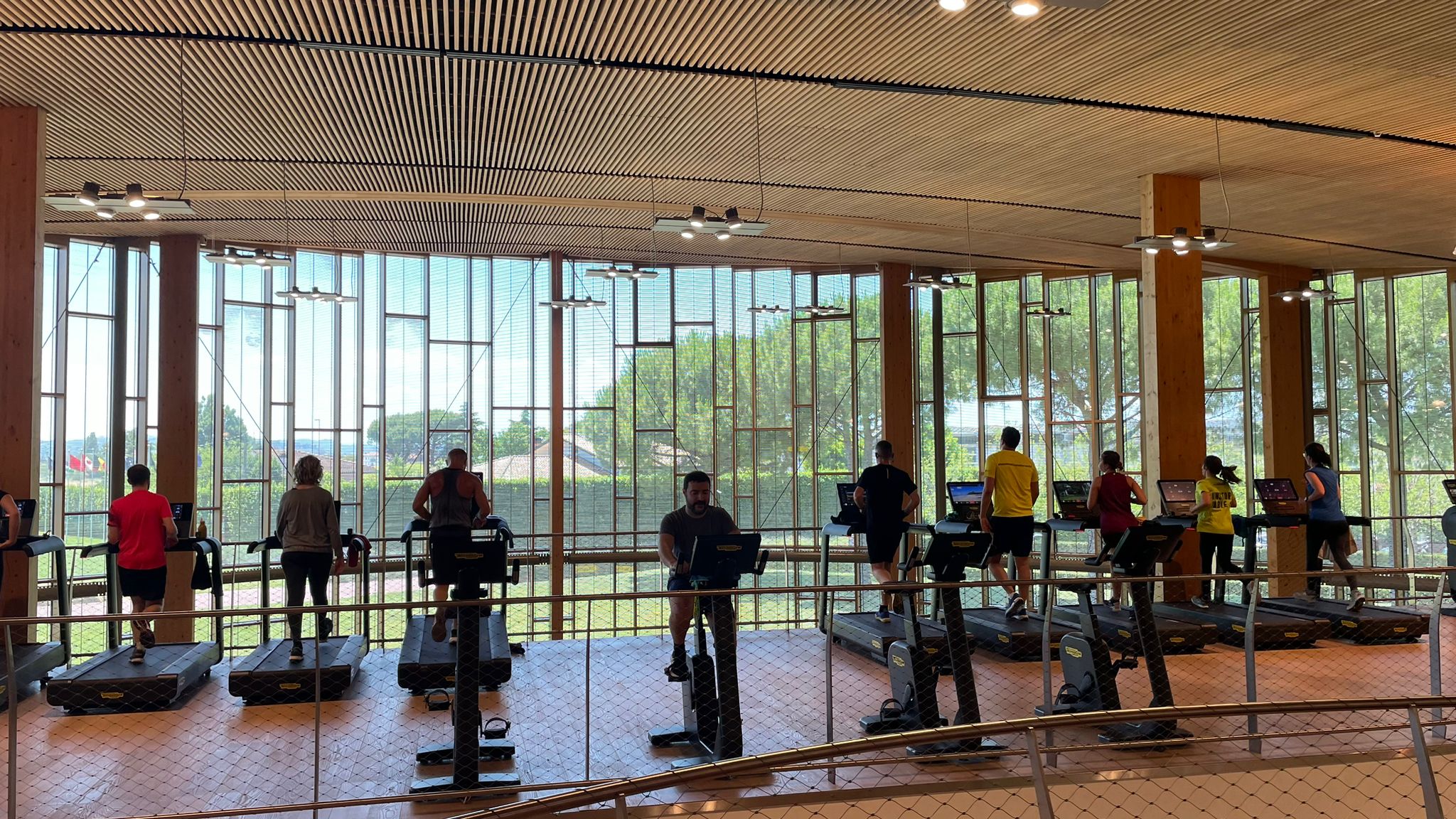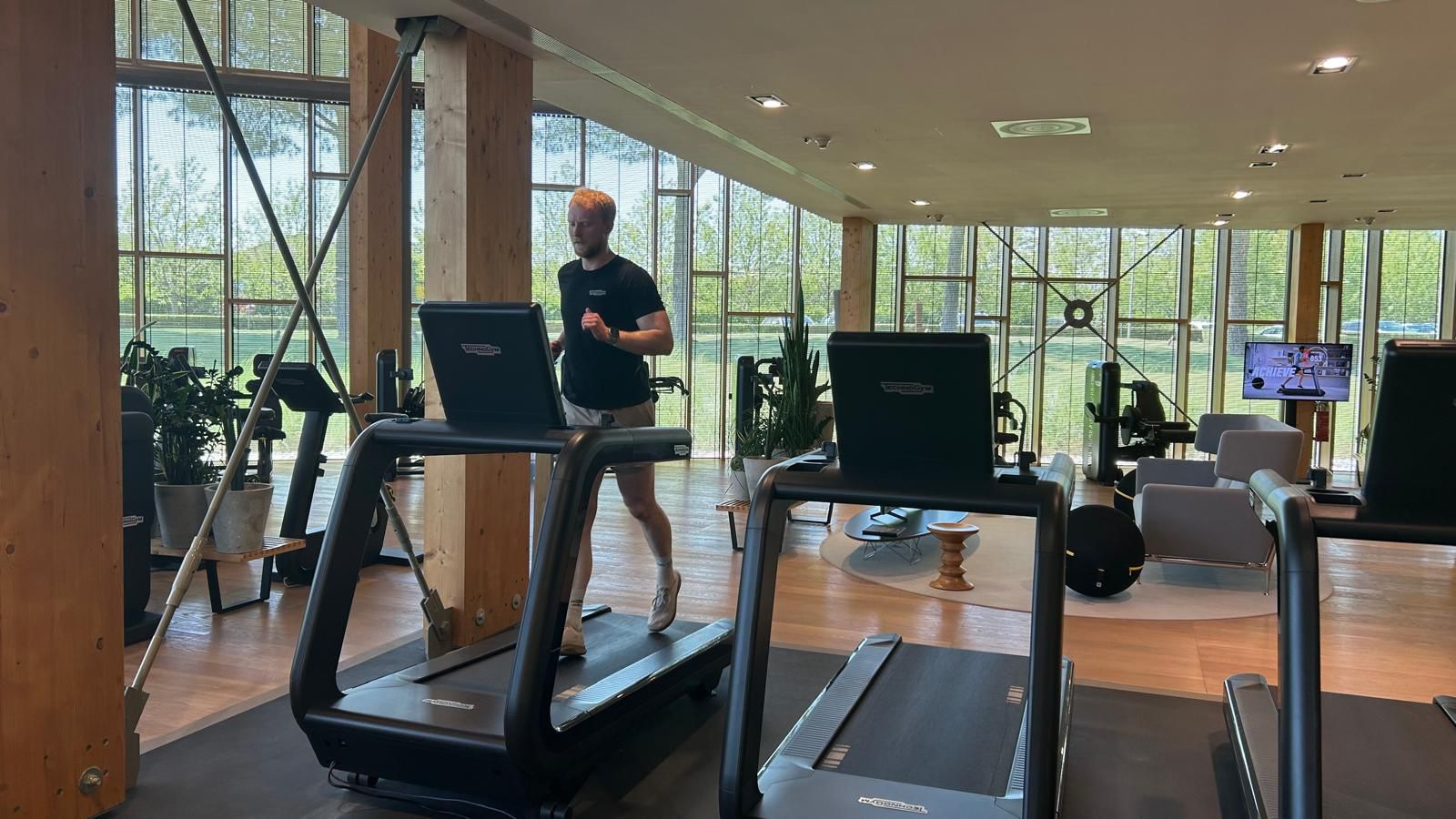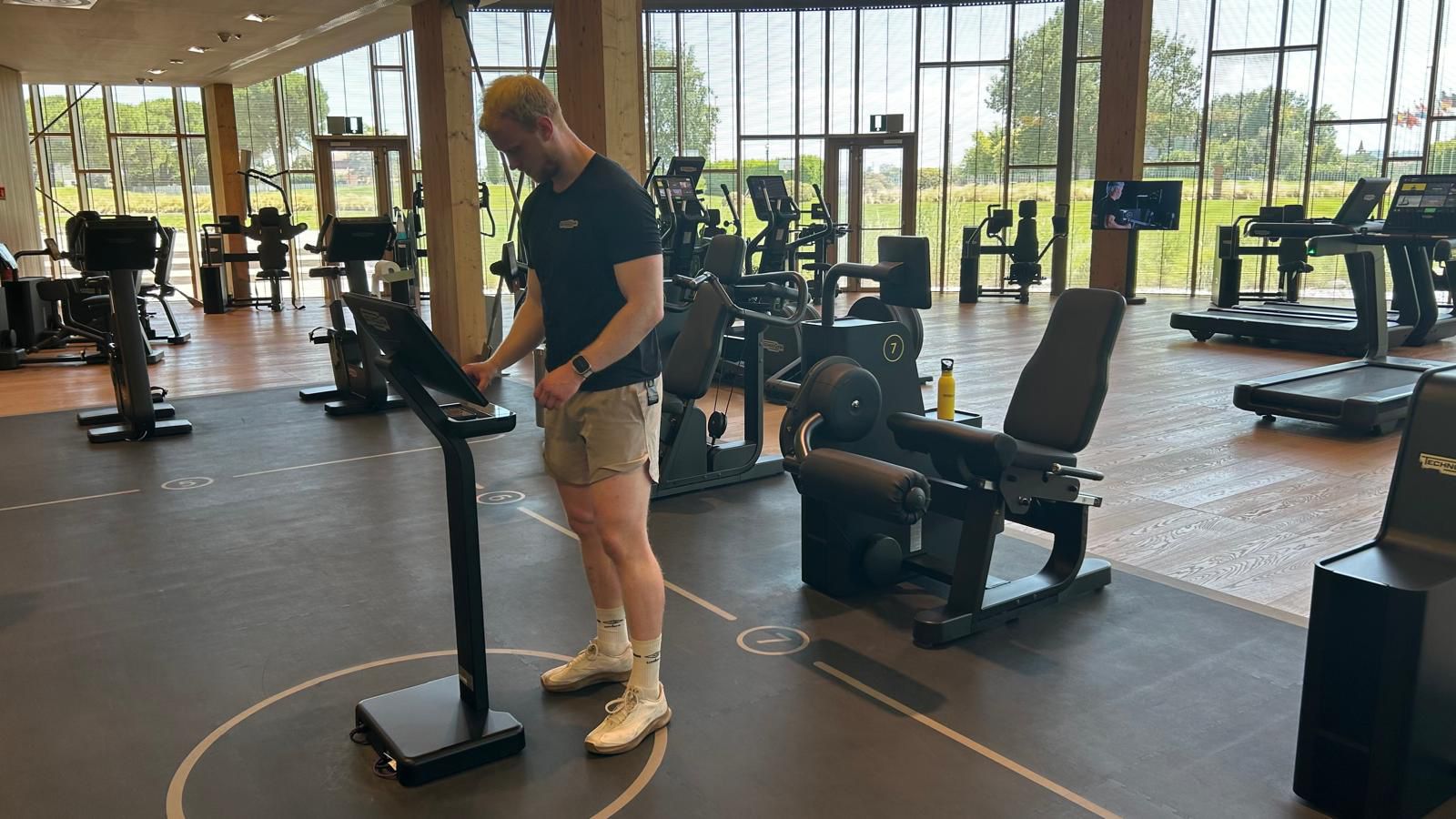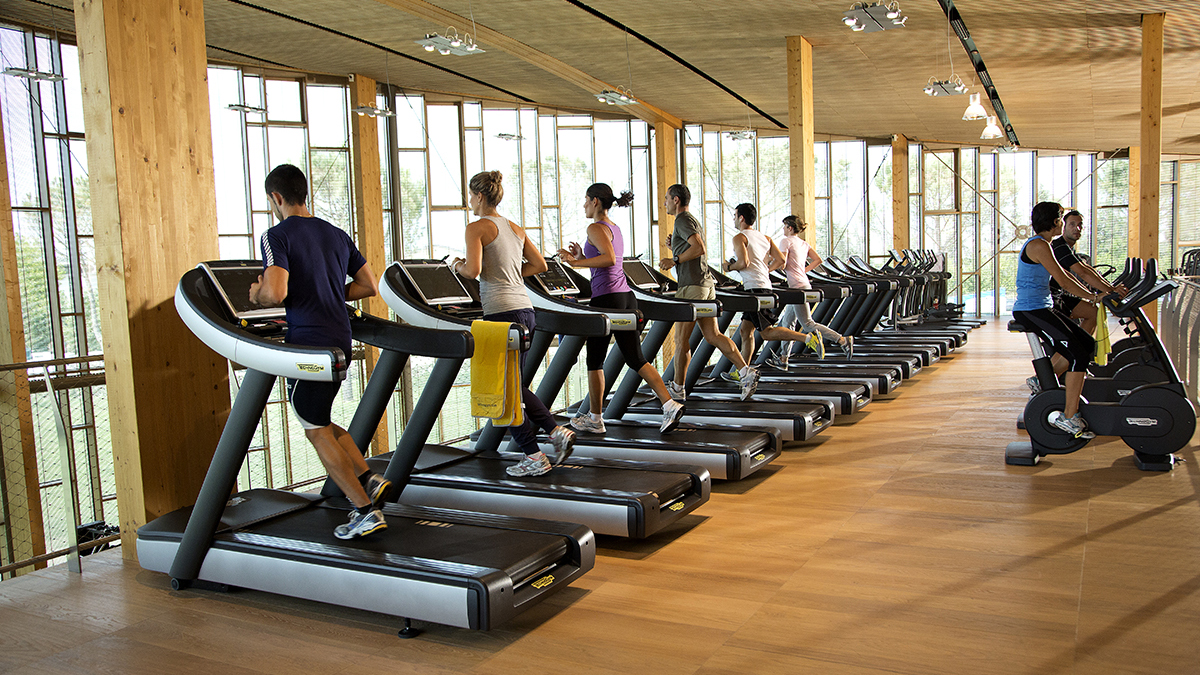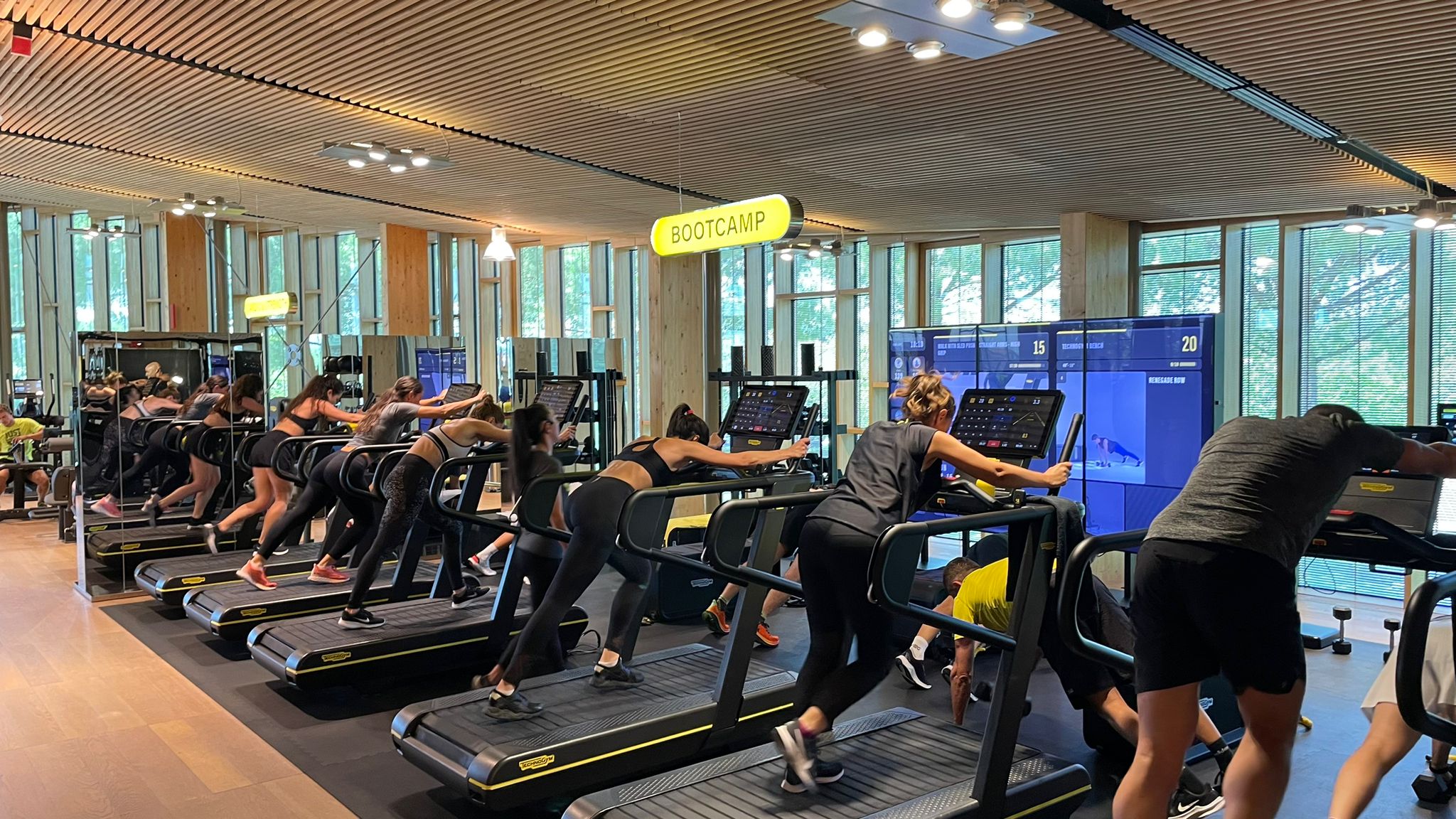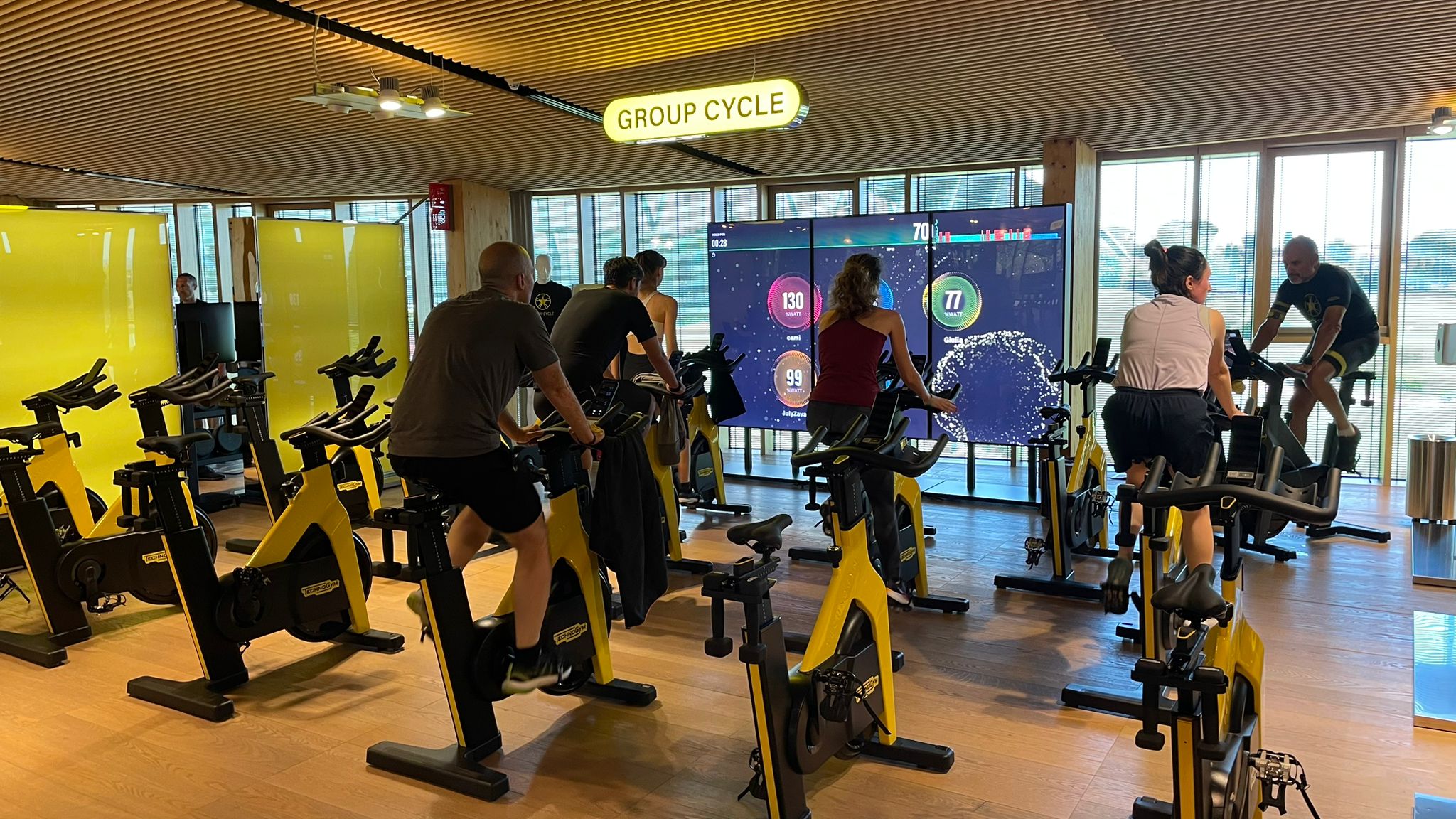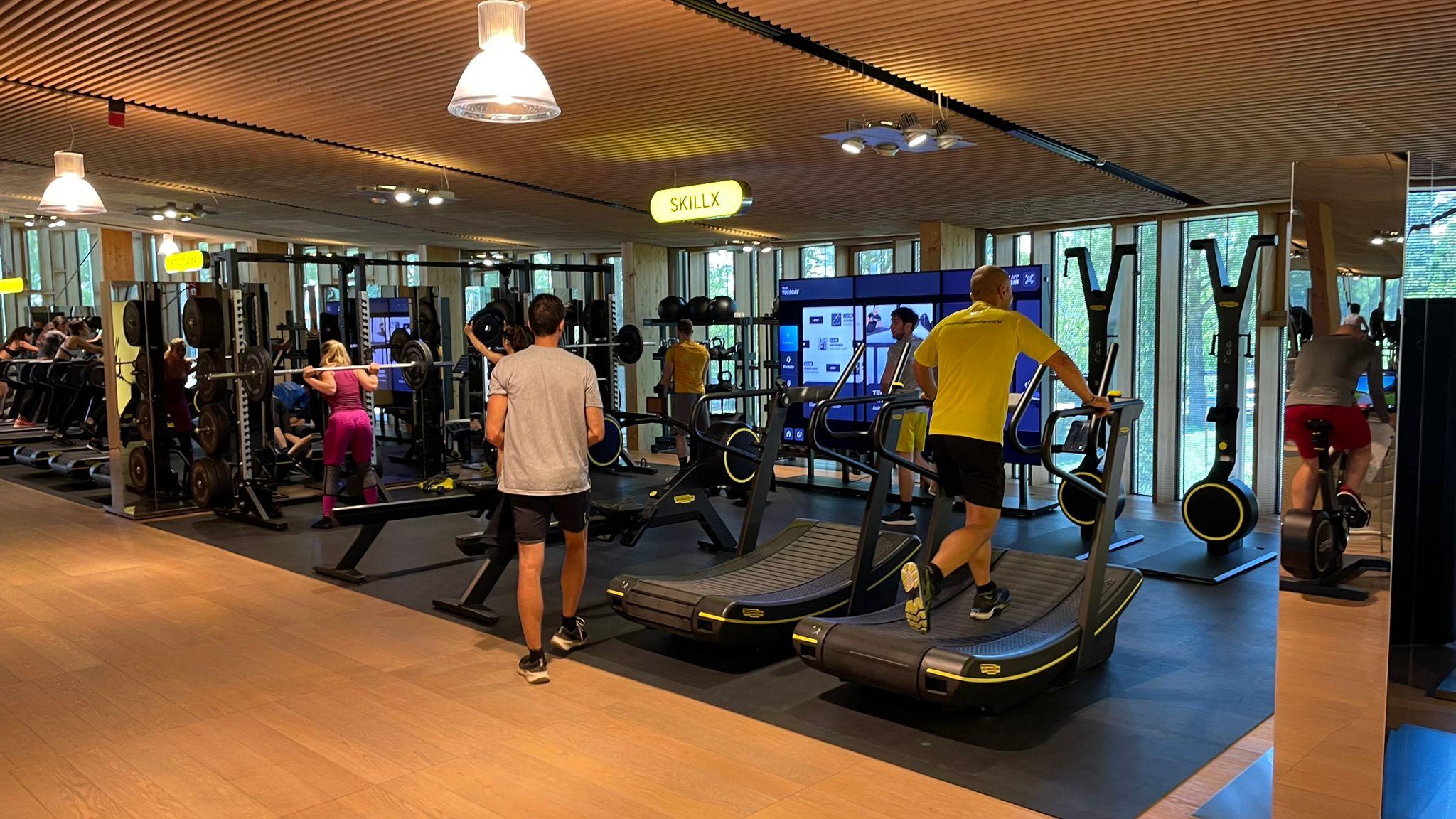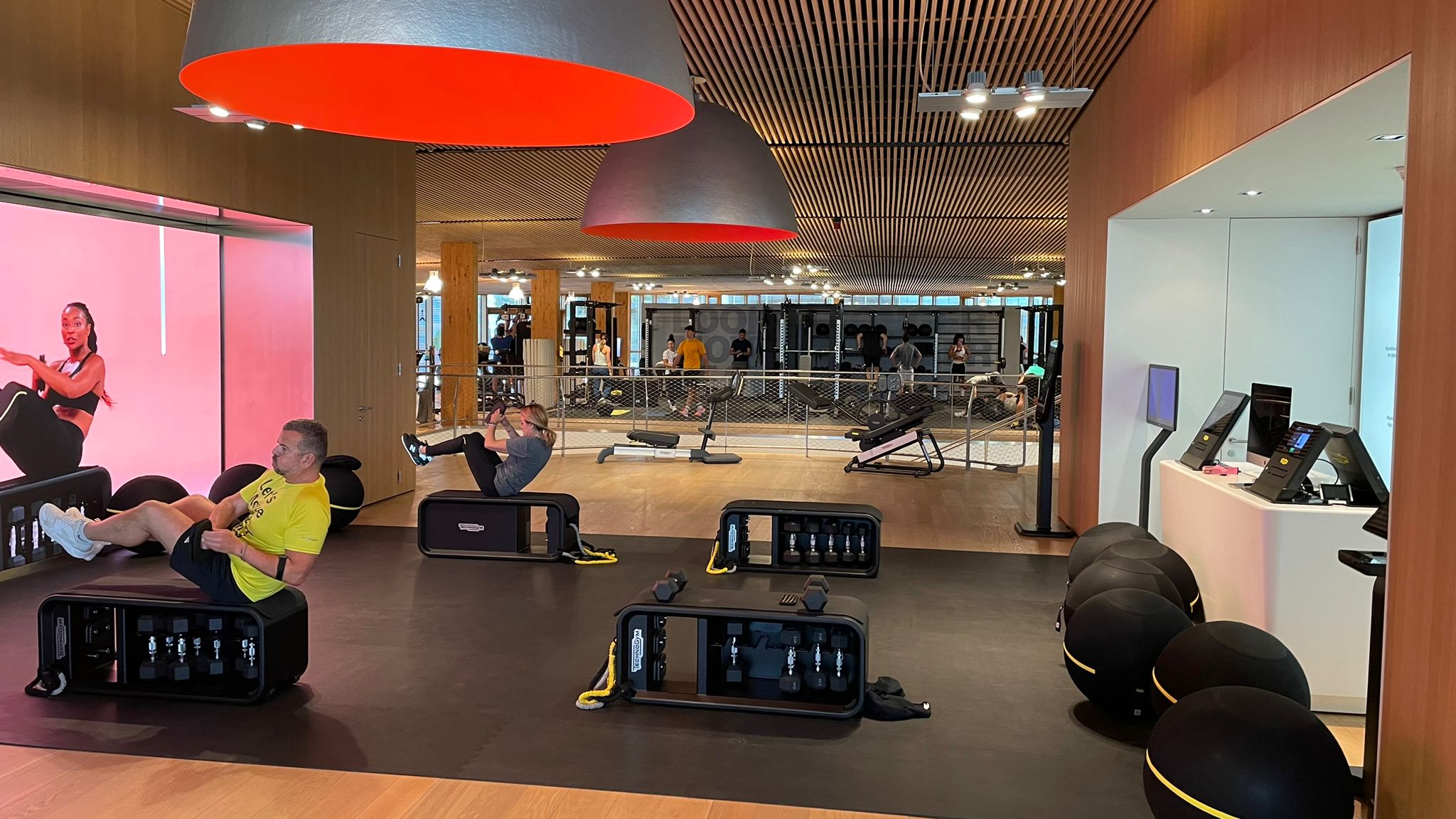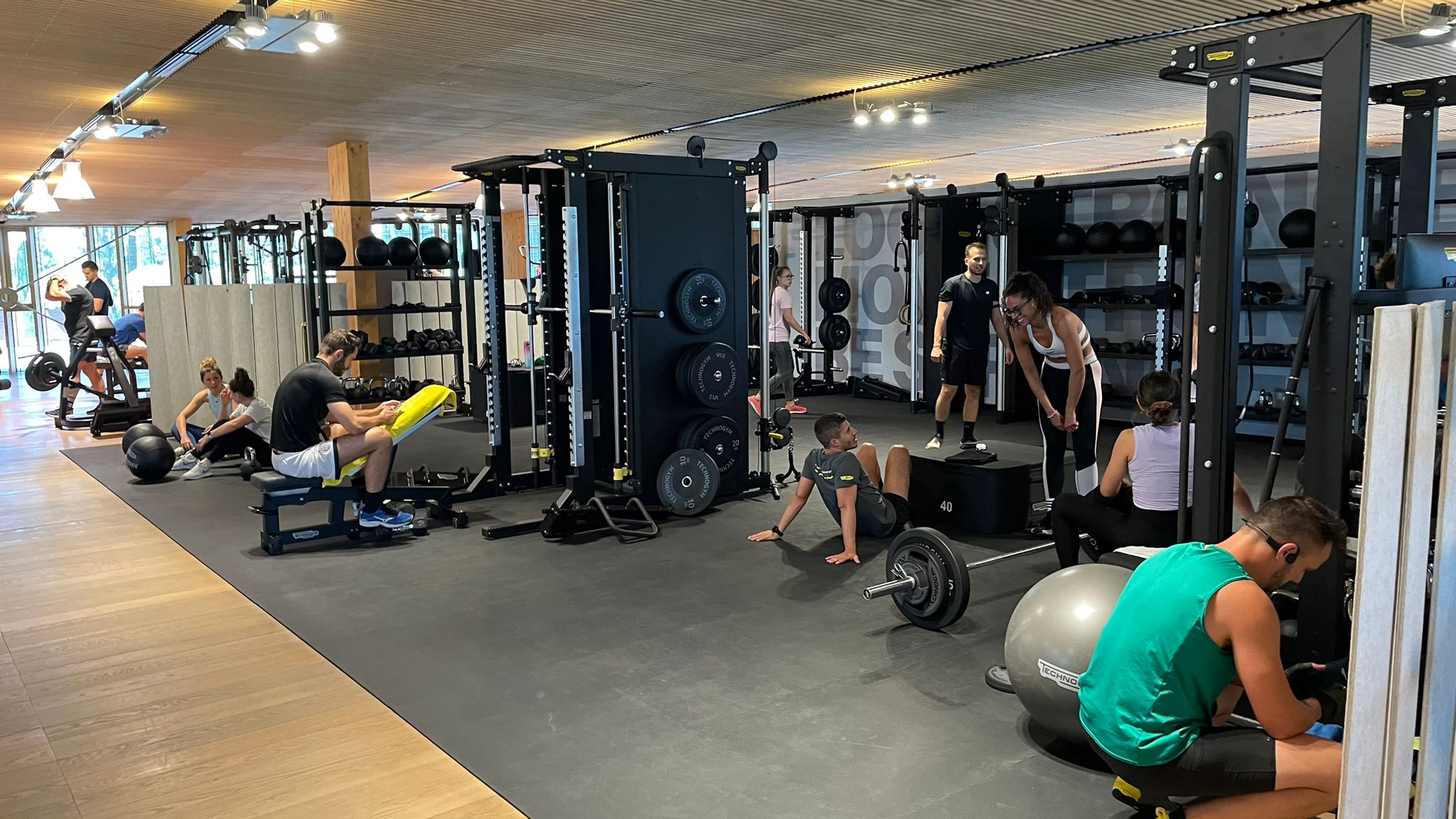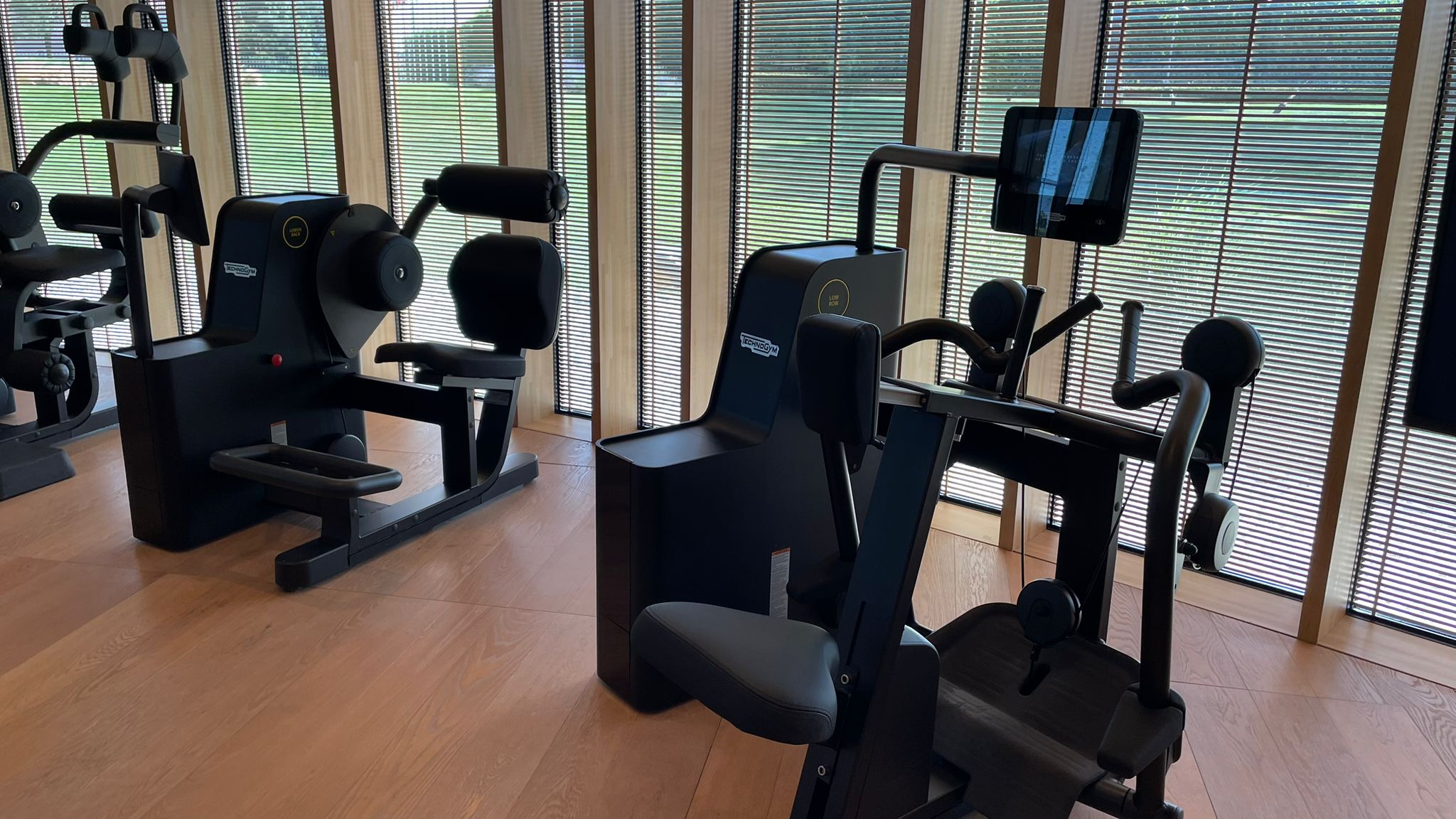In 86-degree Italian heat, amid a sea of burnt yellow fields, an armada of robot lawnmowers tend to lush green grass. Behind them sits a vast building made from sheets of spotless glass. This is the Technogym Village.
The Italian fitness giant is known globally for making some of the best treadmills and exercise machines on the market, and stocks commercial gyms and hotels worldwide. If you’ve been to one or two popular gym chains in your life, and not just used exercise equipment like Peloton at home, it’s likely that you’ve tried a Technogym product before.
Its Cesena, Romagna headquarters are a monument to all things wellness. To a fitness fanatic like me, the chance to peek inside triggers a feeling similar to that of Charlie Bucket when he spotted a golden ticket in his Wonka bar.
It didn’t disappoint either. From the moment I stepped through its sliding doors, every element was almost hyperbolically health-driven – my intro meeting took place at a fruit-covered conference table, which was surrounded by inflatable exercise balls in lieu of seats (to prevent slouching, my tour guide explained with an acrobatic demonstration, much like we use the best under-desk treadmills alongside standing desks).
The building’s shape mimics rippling waves so every inch of the site is hit by natural light, the foyer is filled with exercise machines and a sequence of Olympic torches are proudly displayed along one wall – Technogym has been the official equipment supplier for the event for some years now.
After my induction, which included a hype-laden video account of the company’s history, I was directed to a balcony overlooking the factory floor; an immense space where each Technogym machine, from ellipticals to treadmills, has its own production line.
This is a far cry from the poky garage where Technogym founder and president Nerio Alessandri pioneered his first exercise machine in the early 1980s. The then-engineer was working in fruit packaging but after spotting someone squatting with poor form at his local gym, he set out to build a solution. Thus, the hack squat machine was born, and many people (myself included) now have him to thank for some very sore legs.
From the factory I was directed down a dark tunnel, the contents of which were secret and off-the-record, so before reaching the end I was instructed to make a sharp about-turn – whatever lies beyond is top secret and for Technogym eyes only, for now at least.
Next it was on to the science lab; three adjoining rooms where memorabilia from the likes of Formula One’s Fernando Alonso and footballer Lilian Thuram cover much of the walls.
The team proudly tells me how the labs have been a big part of the Technogym set-up since the beginning, before pointing out 30-plus plaques showing “scientific partners” (largely universities) that Technogym has teamed up with on studies and research papers to support its work.
One room of the lab, called the “motion room”, contains a rowing machine set up on a pressure-sensing tile, surrounded on all sides by 1,000 frames per second cameras. Another room focuses on metabolism, using a treadmill and a medical-looking mask wired up to a machine to delve into users’ inner workings.
“We prefer to be very specific with the science,” a top engineer and 25-year Technogym veteran tells me. This, he says, prevents phenomena such as “magic calories”, where machines from (unnamed) competitors exaggerate calorie burn to give people the information they want to see, rather than the accurate figures they need to inform their training.
Technogym also tests the equipment with a wide range of subjects, from recreational exercisers to elite athletes. Olympians make “the worst customers and the best product testers” thanks to their extreme shapes, sizes and performance levels, I’m told – “If it works for Olympic athletes, it will work for everyday people”.
As the tour continues, a mounting thrum of excited chatter, humming treadmill belts and clanging weight plates can be heard coming from somewhere nearby. At Technogym, these sounds are synonymous with lunchtime. Every employee is given a two-hours break and, while they’re free to do as they please, exercising and eating well are encouraged.
Fuelling yourself effectively is made easier by an on-site “wellness restaurant”, which serves a buffet of freshly-cooked food for a daily donation of less than $2.
When I described my usual noon go-to of a hastily-prepared sandwich to Technogym team members, I was met with looks of pity. After polishing off a plate of spaghetti, tomato sauce and parmesan with a side of mixed vegetables at their wellness restaurant, I understood why.
Workers are also served a smorgasbord of optional workout classes during their lunch break, as well as free rein of Technogym’s two-storey gym. As someone who loves little more than lifting weights, this was the part of the tour I was most looking forward to.
The first thing I noticed in the gym was the vast array of cardio equipment, from rowers to static bikes to treadmills – if you’ve been to a swish hotel gym, you’ll be familiar with these products.
Exercise machines are, arguably, what Technogym is best known for – a few years ago I remember seeing a gym-focused TikToker lamenting the brand’s lack of bodybuilding options. But the on-site gym is far from a cardio-only zone.
Outside you’ll find basketball and volleyball courts for intra-company tournaments, downstairs I discovered myriad resistance training machines to work every muscle group, and upstairs there are power racks, lifting platforms, free weights and cable machines.
Despite the plethora of ultramodern training tech on offer, I’m happy to report that there was still someone squatting under a heavy barbell, armed with a taut lifting belt and a friend acting as a spotter – some things never change.
There are also dedicated areas for a range of training styles, each signposted with bright yellow light-up signs; cardio and strength, bootcamp, skillX, pure strength, group cycle and mindful training, to name a few.
What I was most surprised by, however, was that the place was packed. Six exercise classes were running at any one time, all with healthy attendance levels, while countless other employees chose to train under their own steam using the eclectic collection of kit on offer.
As I was admiring this impressive turnout, the formerly-suited and booted engineer from the lab trotted past in his workout gear – “my turn now”, he laughed before hopping on an exercise bike and setting the wheels in motion.
Another employee tells me: “Wellness isn’t something you can explain, it’s something you feel”.
This is a bit too close to cliché for my liking, and I’ve always been skeptical of the word “wellness”. To me, it feels like a vague umbrella term that’s of more use to marketers than those actively trying to improve their health and fitness.
But Technogym has taken the phrase and run with it, defining it as “the right mix of eating well, sleeping well, feeling protected, relaxing and being active”. And, from what I’d seen, those inducted into the Technogym fold practice what they preach.
Case in point: model David Gandy doesn’t just have a home gym filled exclusively with Technogym gear, he picks his hotels based on whether they’re decked out with the stuff too.
The brand isn’t stopping with its employees either. As I walked from the gym back to the front desk to conclude the tour, my guide alerted me to founder Nerio Alessandri’s Wellness Valley project, which calls on key players in the surrounding region of Romagna to promote healthy behaviors. This, he hopes, will turn the area into a “living lab” of sorts.
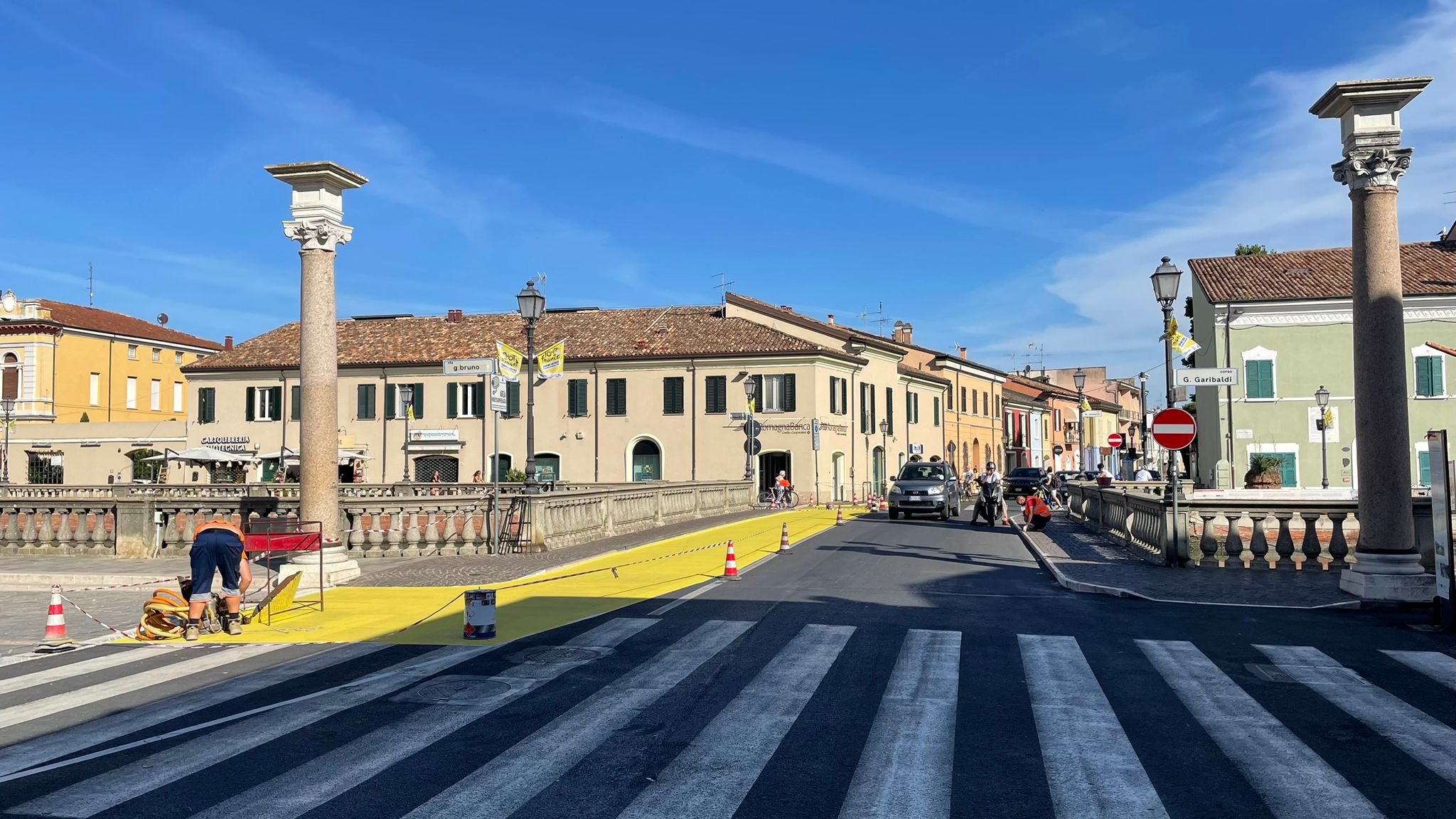
What this didn’t mean was that I was surrounded by six-packs and protein shakes while staying in the nearby port town of Cesenatico. Bakery windows are still filled with the sweet treats you associate with a trip to Italy, and lazing on a deckchair is a popular pastime.
But there was an undertone of activity wherever I walked. The face of local Tour de France winner Marco Pantani is around every corner, cycling is commonplace (I saw the sites via a bike tour), the seafront is lined with beach volleyball courts, and chefs I speak to say most of their ingredients traveled mere minutes from source to kitchen.
There’s a generous provision of bike lanes, a wealth of playgrounds for children, and as I explore the town I spy workers painting part of a road bright yellow as the town prepares to host part of the Tour de France.
The Wellness Valley project’s website suggests these subtle changes are working. The active population in the area is almost 10 per cent higher than the figure for all of Italy (55.1 per cent rather than 46.2 per cent), and the sedentary portion of the population is almost half that of the national average (16.1 per cent compared to 30.6 per cent).
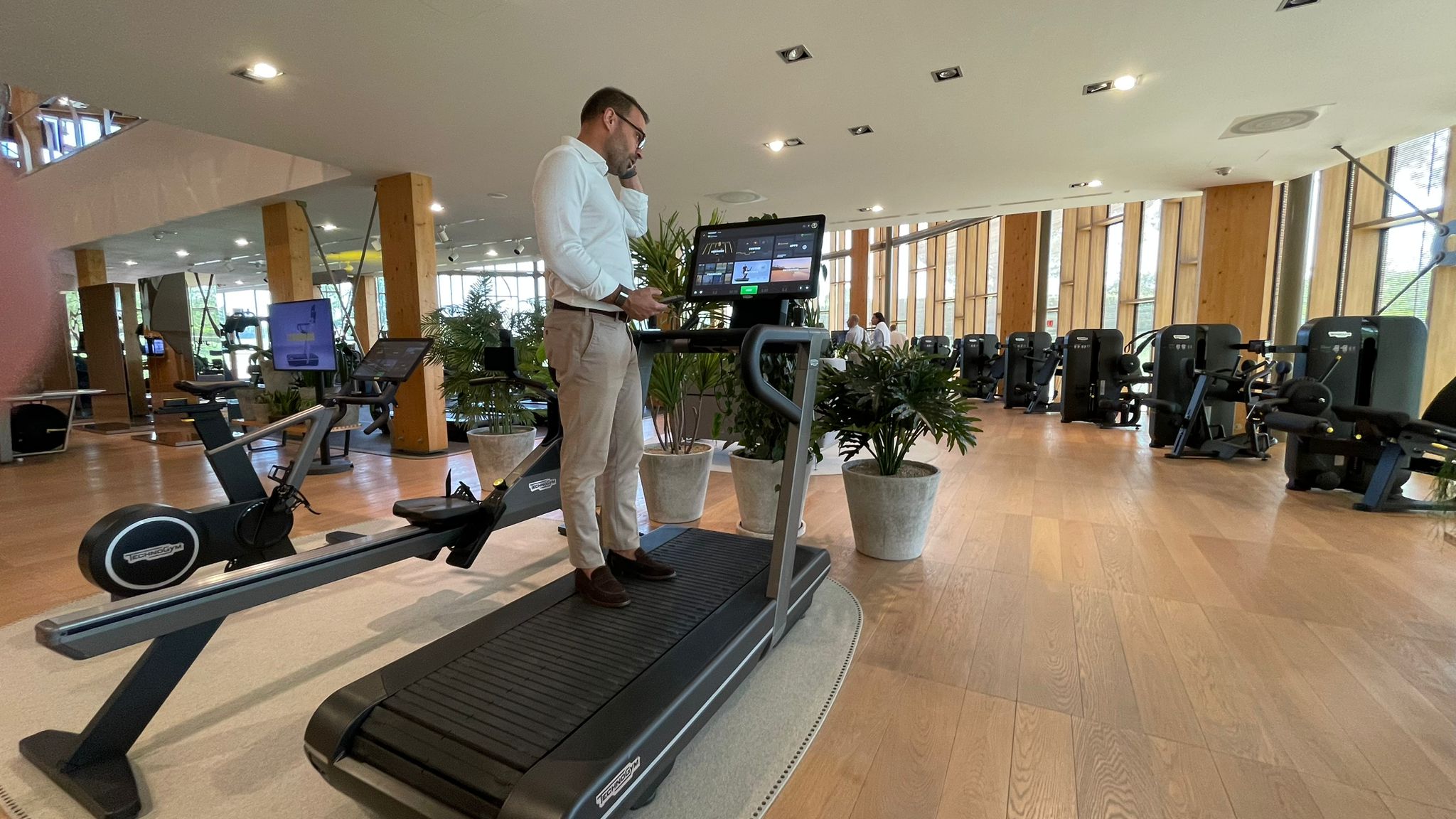
As I wrapped up the tour and left the Technogym Village through its smudge-free glass doors, it was hard not to be swept up by the slick operation. But I forced myself to apply some skepticism to the situation.
By providing longer lunch breaks and a wide variety of exercise options, the brand has bulldozed many of the barriers that stop people from leading a healthier, more active lifestyle; time, accessibility, cost, resources.
But would its wellness-led approach work in offices elsewhere, or has Technogym just curated the ultimate echo chamber of like-minded fitness fans? This is no bad thing, but everyone who works here applied for a job at a fitness company, which you would imagine means most of them had an interest in the field.
What I can say for certain is that I thoroughly enjoyed the tour, bouncing between shiny new machines like a kid in a candy store – or chocolate factory, if you will.
I also think it’s telling how many of the employees had been with Technogym for a decade or more, with every one I spoke to oozing an irresistible passion for their work and the resulting products.
Yet, however infectious their enthusiasm was, it may be some time before I swap my office chair for an inflatable exercise ball.
You might also like…
Source link

